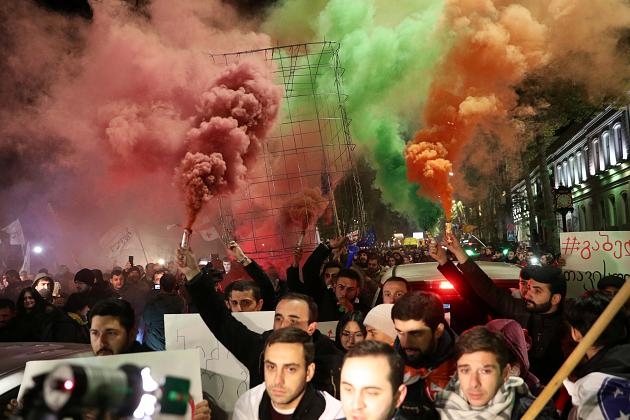Euronews Releases an Article about the Tbilisi Protests
Euronews issued an article on the enduring protests in Tbilisi, relating to the demand for electoral reform. The title of the article is: “Tbilisi protests: Why do tens of thousands of Georgians want early elections?”, and it provides an overview of the demonstrations and what they entail.
“For two weeks, protesters in Georgia have blockaded the country’s parliament building in demonstrations over electoral reform that have brought tens of thousands to the streets. Activists want to see a reform of the election system scheduled to come into force in 2024 brought forward by four years, allowing the country to shift from a so-called single-mandate constituency to one based on proportional representation.
They say that the current system favors the ruling Georgian Dream party, which is headed by a former prime minister and Georgia’s richest man, Bidzina Ivanishvili.” states the article.
Currently, Georgia uses a mixed electoral system, in which politicians are elected through proportional representation but not enough constituency seats, and in the end, it automatically favors the ruling party. To successfully implement the proportional representation system, the entire country must be treated as a single constituency and the voters must vote nationally on party lists.
“The protests have spread to other cities, including Mtskheta, Zugdidi, Poti, Telavi, and Ozurgeti, where protesters have locked the gates of municipalities and government buildings. The actions have been condemned by the country’s prime minister. Since then, dozens have been arrested and police have used water cannon to disperse protesters outside the parliament building in Tbilisi. On Tuesday, huge steel gates were erected around the parliament building to keep demonstrators away. It isn’t the first time in 2019 that Georgia has been rocked by street protests. Back in June, thousands took to the streets after a lawmaker in the country addressed the parliament in Russian, provoking anger in a country with tense relations with Moscow”, reads the article.
By B.Aleksishvili












